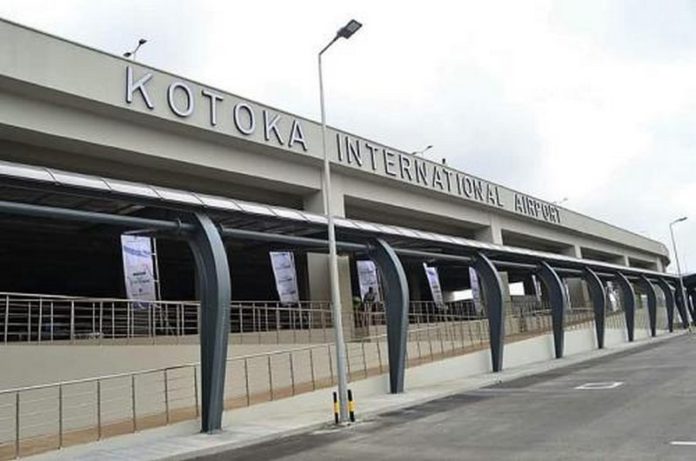Ghana Link Network Services Ltd, operators of the Integrated Customs Management Systems (ICUMS), has firmly denied media reports alleging that scanners at the Kotoka International Airport (KIA) Cargo Village are broken down, forcing authorities to rely solely on sniffer dogs for detecting contraband.
In a detailed statement, the company described the claims as “false, misleading, and damaging” to the integrity of Ghana’s border security systems and the reputation of firms responsible for safeguarding the country’s critical national assets.
All Scanners Fully Operational
Ghana Link confirmed that all five scanners at the Cargo Village are fully operational.
These include four Smiths Heimann scanners used for export checks and one Rapiscan Eagle A25 import scanner. The company emphasised that the scanners are not only active but also maintained regularly to meet international security and trade facilitation standards.
“The four export scanners, manufactured by Smiths Heimann of France—a global leader in aviation security—are operating at optimal efficiency,” the statement said. “The Rapiscan Eagle A25 import scanner, one of only three of its kind in Africa, continues to support the detection of inbound contraband, including narcotics, ammunition, and other prohibited items.”
Standard Cargo Screening Process
Ghana Link clarified that the standard cargo procedure at KIA involves all inbound air cargo being transferred directly from the tarmac to the scanners for mandatory inspection before clearance by Customs. Similarly, outbound goods undergo examination and documentation before being scanned and moved into secure biometric warehouses for emplanement.
“Contrary to the recent reports, sniffer dogs are not used as replacements for scanners,” the statement added. “Their deployment by the Narcotics Control Commission (NACOC) is based solely on intelligence, and they are sometimes used before scanning as a supplementary security measure.”
Context Behind Recent NACOC Operation
The company noted that in the recent case cited in media reports, NACOC had received credible intelligence and therefore deployed sniffer dogs to inspect suspicious goods before they reached the scanners.
Grave Concerns Over Misreporting
Ghana Link expressed deep concern over what it described as the spread of unverified and inaccurate information. It warned that such misinformation could have far-reaching consequences, including:
-
Undermining public trust in Ghana’s port and border security systems.
-
Attracting unnecessary scrutiny from international aviation, trade, and security bodies.
-
Damaging the reputations of companies that have consistently invested in and supported these security systems.
Call for Retraction and Accountability
The company called on media houses that reported the alleged scanner breakdowns to retract and correct their stories immediately to reflect the facts.
“We urge the public and stakeholders to be guided by accurate information,” Ghana Link stated. “Were these scanners to be dysfunctional as claimed, there would have been noticeable disruptions such as delays, increased demurrage costs, and issues with perishable goods leading to immediate complaints from freight forwarders and shipping agents.”
Ghana Link reaffirmed its commitment to working with state agencies to enhance border security and maintain international standards. However, it stressed that this commitment must be met with collaboration and truth, not misrepresentation.
Source: Ghana Link
READ ALSO:



